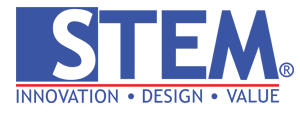SAP Business One offers a comprehensive suite of features meticulously designed for the food and beverage (F&B) industry. This ERP solution addresses complex challenges ranging from production and recipe management, quality control, and batch and expiry date tracking, to ensuring regulatory compliance for efficient distribution.
Why Are ERP Features Crucial for the Food & Beverage Industry?
The food and beverage industry operates under relentless pressure. Its challenges extend far beyond taste or marketing, encompassing product safety, operational efficiency, and stringent regulatory compliance. Without an integrated system, companies often struggle with costly inefficiencies.
Some of the most pressing pain points include:
- Risk of Expired Stock: Products pile up in warehouses without clear expiry controls, resulting in financial loss and waste.
- Inconsistent Product Quality: Maintaining standardized recipes and uniform production processes across every batch is challenging, often eroding consumer trust.
- Complex Regulatory Compliance: The F&B sector is governed by authorities such as BPOM and international standards like HACCP. Manual audits are time-consuming and vulnerable to human error.
- Traceability Challenges: In cases of contamination or quality issues, tracing problems from raw materials to finished goods becomes a nightmare without a robust system.
This is where F&B-focused ERP solutions like SAP Business One play a transformative role. Beyond automation, the system delivers accurate, real-time data to support faster and more precise decision-making.
Key SAP Business One Features for F&B Manufacturing

SAP Business One is engineered with industry-specific features that directly address the unique demands of F&B businesses, ensuring operational excellence from raw material intake to final consumer delivery.
1. Production & Recipe Formulation (Bill of Materials)
Recipe management lies at the heart of every F&B business. SAP Business One’s production module enables companies to manage detailed formulations (Bill of Materials or BoM). Businesses can define raw material composition, quantities, production instructions, and precise per-unit costs.
Any recipe modification automatically updates raw material requirements and production costs, guaranteeing consistency in taste and quality across every batch.
2. Batch & Expiry Date Management
One of the most critical features for F&B manufacturing is batch (lot) and expiry date management. Every incoming raw material and finished product is assigned a unique batch number, with automatic tracking of production dates, expiry dates, and storage locations.
With SAP B1’s batch control, companies can systematically enforce the First-Expired, First-Out (FEFO) strategy. Warehouses prioritize dispatching near-expiry stock, reducing spoilage and financial losses.
3. End-to-End Traceability & Product Recall
Traceability is the ability to track a product’s journey from origin to consumer. SAP Business One enables this with a single click.
In the event of contamination or a customer complaint, batch numbers can be immediately identified. From there, the system traces back to:
- The specific production process involved.
- The suppliers of the raw materials used.
- The distributors or customers who received products from that batch.
This capability ensures recalls are swift, targeted, and efficient—minimizing reputational damage to your brand.
4. Quality Control & Regulatory Compliance
SAP Business One integrates a comprehensive Quality Control (QC) module across every operational stage. Companies can set quality benchmarks and test parameters at key points: raw material intake, production, and pre-shipment checks.
QC results are systematically recorded. If a batch fails standards, the system can automatically block it from moving forward. This ensures compliance with regulations such as HACCP certification and BPOM requirements, with all records meticulously documented and audit-ready.
5. Integrated Supply Chain & Distribution
An efficient supply chain is the backbone of profitability. SAP Business One integrates procurement, inventory, production, and distribution into one seamless flow. It supports demand forecasting, purchase order management, and optimized stock levels.
The distribution module ensures smooth delivery operations, directly connected with sales and inventory data. This prevents costly stock-outs or overstocks, keeping cash flow steady and operations resilient.
Benefits of SAP Business One Features for the F&B Industry
Adopting SAP Business One offers significant competitive advantages for F&B companies:
- Enhanced Production Efficiency: Automated planning, recipe management, and material requirements reduce waste and downtime.
- Minimal Expiry Risks: Accurate batch and expiry tracking mitigates financial loss from spoiled products.
- Streamlined Regulatory Compliance: Centralized, standardized digital records simplify audits for BPOM, Halal, or HACCP certifications.
- Increased Consumer Trust: Reliable traceability and consistent quality assurance strengthen customer loyalty and confidence.
Comparison with Conventional ERP Systems

Many F&B businesses begin with accounting software or generic ERP systems. However, these often fall short. The difference lies in industry-specific features.
While conventional ERP may manage finance and sales, it typically lacks essentials like batch and expiry management, end-to-end traceability, and integrated QC modules.
SAP Business One stands out by offering these critical capabilities within a unified, purpose-built platform tailored for the F&B sector.
Case Study: Implementation in a Seasoning Manufacturer
A mid-sized seasoning company struggled to track hundreds of raw spice ingredients, each with different expiry dates. After implementing SAP Business One, they automated FEFO warehouse processes and enabled QC teams to log laboratory test results directly into the system for every production batch.
When an international client requested an audit, the company produced comprehensive traceability reports in minutes—elevating their credibility in global markets.
FAQ (Frequently Asked Questions)
1. What are the core features of SAP Business One for the F&B industry?
Key features include recipe management (BoM), batch and expiry date tracking, full traceability, integrated QC, and streamlined supply chain and distribution management.
2. How does SAP B1 support food traceability?
SAP Business One assigns batch numbers to every raw material and finished product. This enables both backward traceability (tracking finished goods back to raw materials) and forward traceability (tracking distributed goods to customers), critical for efficient recalls.
3. Does SAP Business One support HACCP/BPOM compliance?
Yes. By digitally documenting production processes, QC results, and traceability data, SAP Business One provides the records necessary for audits and compliance with HACCP and BPOM standards.
4. Is batch & expiry date management available in SAP Business One?
Yes, it is a core feature. The system is designed to manage products by batch (lot) numbers and expiry dates—essential for the F&B industry.
Conclusion: Elevate Your F&B Business with the Right Solution
In a competitive, highly regulated industry, relying on manual processes or generic software is no longer sufficient. SAP Business One for F&B delivers a holistic ERP solution that spans the production floor to the consumer’s table.
With enhanced control over quality, safety, and efficiency, your company can focus on innovation and sustainable growth.
Ready to take your F&B operations to the next level? Contact PT. Sterling Tulus Cemerlang (STEM) today for a free consultation and discover how SAP Business One can be tailored to your company’s unique needs.


